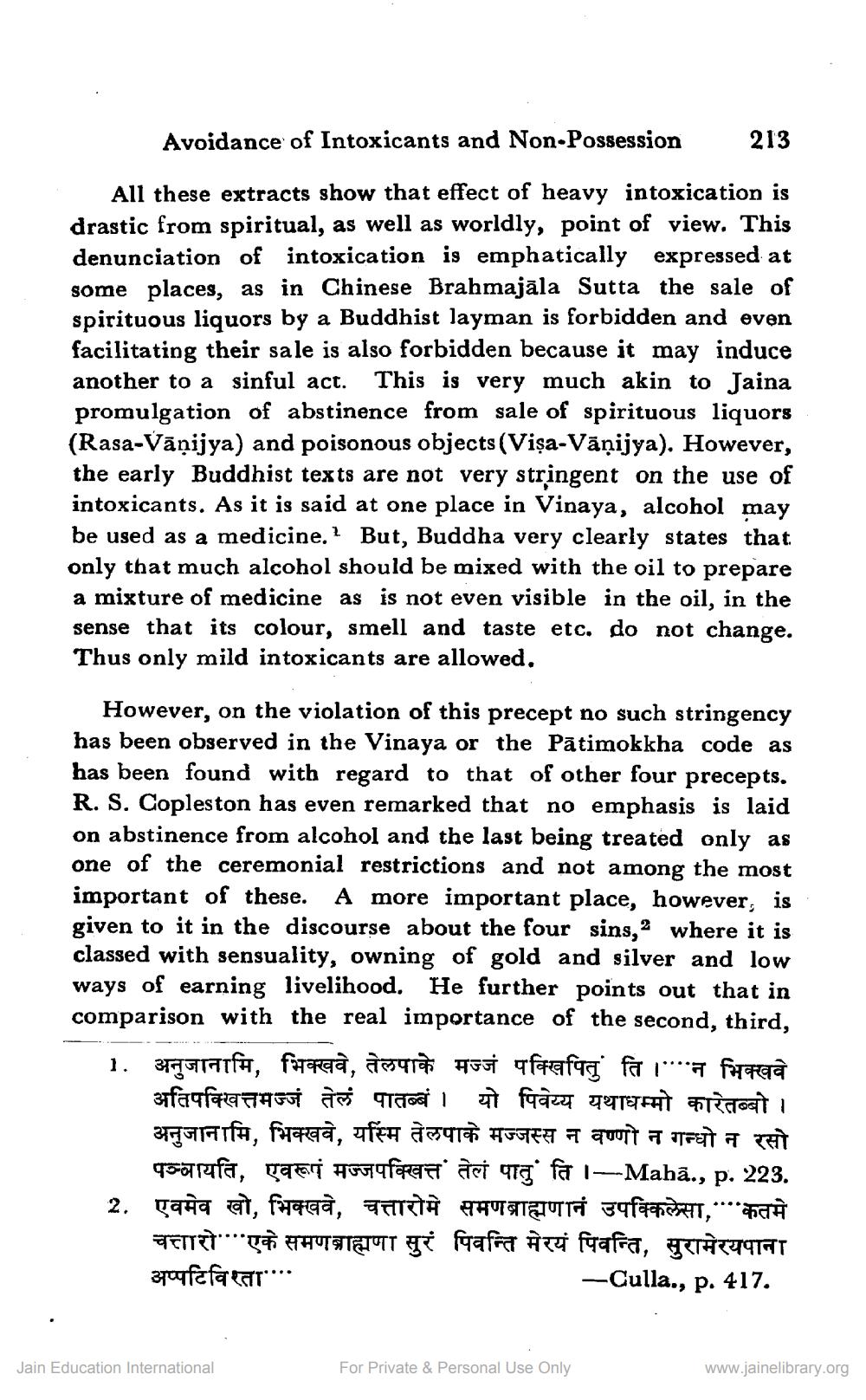________________
Avoidance of Intoxicants and Non-Possession
213
All these extracts show that effect of heavy intoxication is drastic from spiritual, as well as worldly, point of view. This denunciation of intoxication is emphatically expressed at some places, as in Chinese Brahmajāla Sutta the sale of spirituous liquors by a Buddhist layman is forbidden and even facilitating their sale is also forbidden because it may induce another to a sinful act. This is very much akin to Jaina promulgation of abstinence from sale of spirituous liquors (Rasa-Vānijya) and poisonous objects(Vișa-Vānijya). However, the early Buddhist texts are not very stringent on the use of intoxicants. As it is said at one place in Vinaya, alcohol may be used as a medicine. But, Buddha very clearly states that only that much alcohol should be mixed with the oil to prepare a mixture of medicine as is not even visible in the oil, in the sense that its colour, smell and taste etc. do not change. Thus only mild intoxicants are allowed.
However, on the violation of this precept no such stringency has been observed in the Vinaya or the Pātimokkha code as has been found with regard to that of other four precepts. R. S. Copleston has even remarked that no emphasis is laid on abstinence from alcohol and the last being treated only as one of the ceremonial restrictions and not among the most important of these. A more important place, however, is given to it in the discourse about the four sins, 2 where it is classed with sensuality, owning of gold and silver and low ways of earning livelihood. He further points out that in comparison with the real importance of the second, third, 1. BETIH, förarea, aos 90 AJIT afarafoa for 1-7 forrara
अतिपक्खित्तमज्जं तेलं पातब्बं । यो पिवेय्य यथाधम्मो कारेतब्बो। अनुजानामि, भिक्खवे, यस्मि तेलपाके मज्जस्स न वण्णो न गन्धो न रसो
qoorefa, garai hartufera dei no fa 1-Mahā., p. 223. 2. Taha a, fracà, TIITÀ TUTETTİ 59 ISHT, ****
चत्तारो"एके समणब्राह्मणा सुरं पिवन्ति मेरयं पिवन्ति, सुरामेरयपाना Broyfofa Rat****
-Culla., p. 417.
Jain Education International
For Private & Personal Use Only
www.jainelibrary.org




